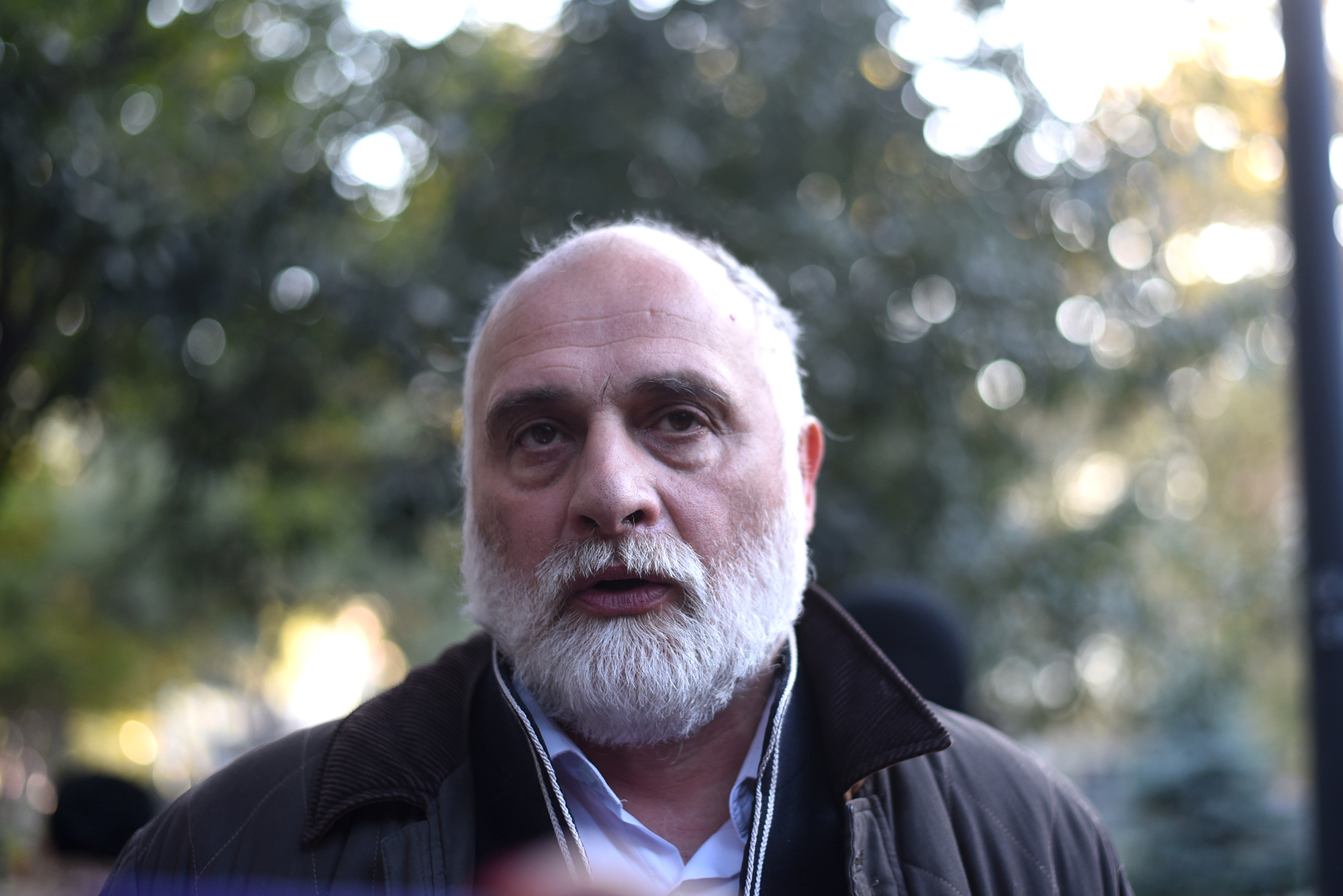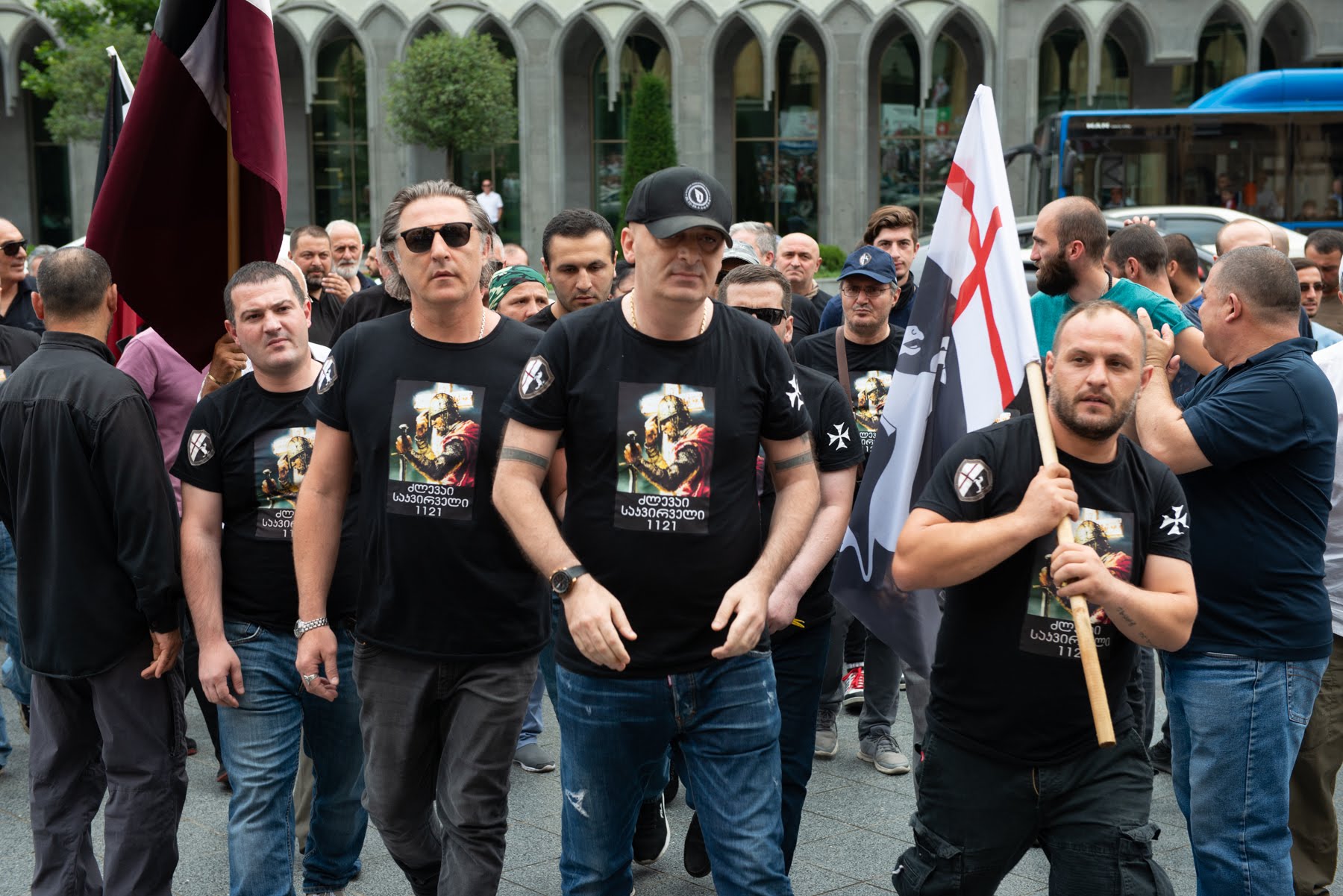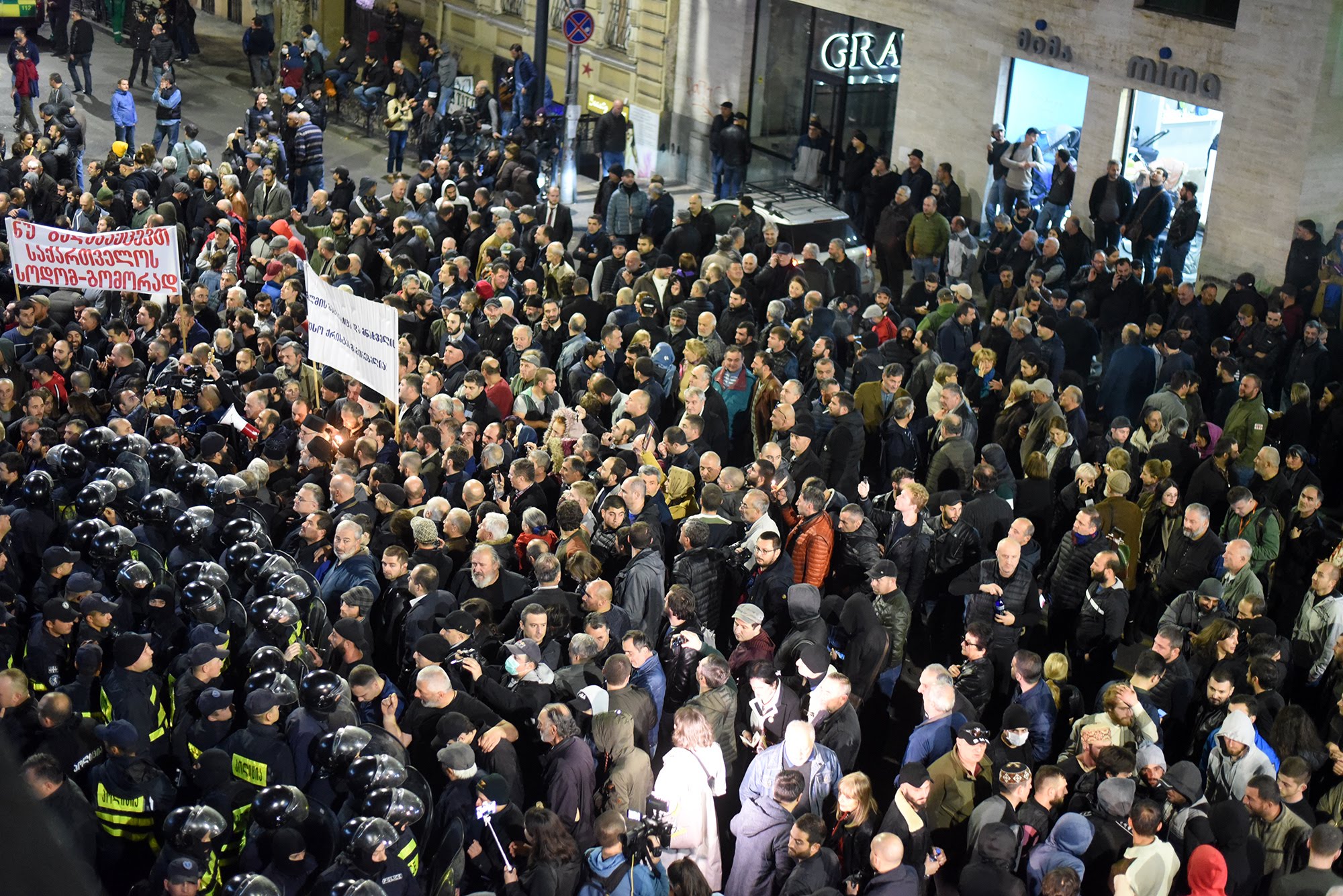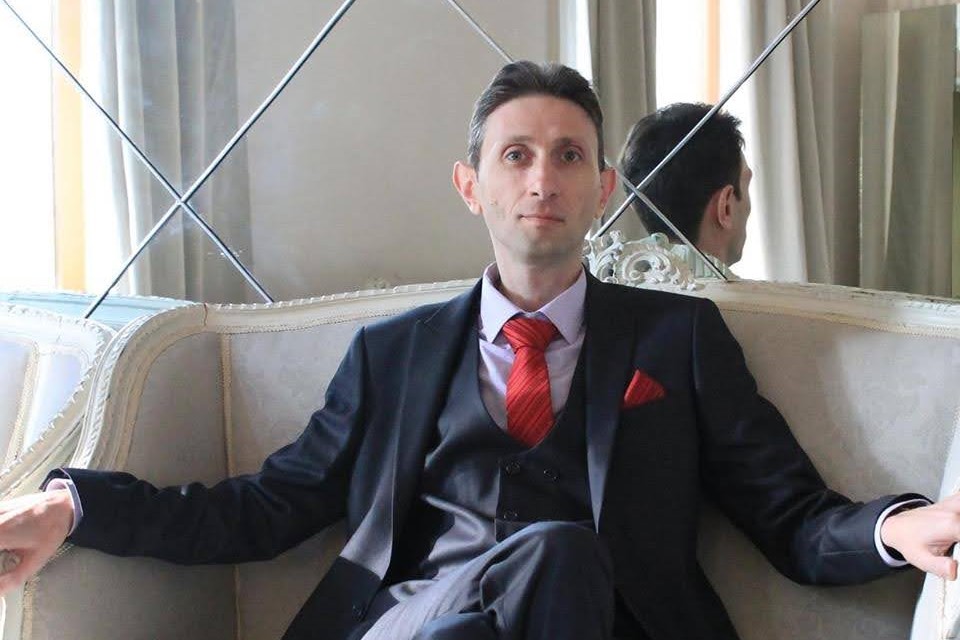
Mainstream opposition groups have not been the only ones upset by the results of 31 October’s parliamentary elections in Georgia, with the most conservative parties also losing out. However, despite not winning seats, the far-right remains anything but powerless.
On 2 November, far-right group Georgian March protested the results of the election outside the offices of Georgian Dream, accusing the ruling party of ‘rigging’ the vote.
The extreme-right group, which have been active with their violent xenophobic, anti-queer, and anti-liberal demonstrations since 2017, launched their political party four weeks before the election day.
In mid-September, Georgian March leader Sandro Bregadze rescinded his candidacy in Gldani, the largest district in the capital Tbilisi. It came a day after he ended up in 5th place with 1% in an opinion poll commissioned by TV company Formula.
On the day of the vote, the party came in 16th place in the national party list vote, with just 4,756 people casting their ballots for the party. Another party leader, Irakli Shikhiashvili, came in 7th in Samgori, Tbilisi’s second-largest district, with just 551 votes.
Georgian March’s other majoritarian candidates fielded throughout the country did not fare any better.
Their failure came despite an endorsement from anti-liberal newspaper Asaval-Dasavali, one of the largest printed periodicals in Georgia.
Georgian Idea, founded in 2014, was another far-right group to make their electoral debut in 2020. They ran on a promise to be a ‘voice of the parish’, that is, of Georgian Orthodox Christians, in parliament. They positioned themselves as being against ‘abortions, drugs, casinos, LGBT, and cults’.

In recent years, Georgian Idea has waged an anti-abortion and anti-queer campaign. They later also began to rally against ‘gender ideology’ and new children’s rights legislation through their affiliated group the Society for the Protection of Children’s Rights.
With all ballots cast through party lists counted, Georgian Idea did slightly better than Georgian March, winning 8,267, or 0.43% of the vote; still far from the 1% threshold needed to enter parliament.
The far-right’s Russia problem
As in recent years, Georgian March have tried to dispute a ‘pro-Russia’ label being cast on them by their critics. The party has insisted they considered groups like Marine Le Pen’s National Rally, the Freedom Party in Austria, and leaders like Italy’s Matteo Salvini as their ideological partners instead.

A study by Georgian think-tank the Democracy Research Institute (DRI) published in July suggested that Georgian March’s association with Russia was still a big challenge for them. Most of the far-right activists interviewed in the DRI report were critical of Georgian March and distanced themselves from it.
‘In their opinion, Georgian March, in all its essence, serves the interests of Georgia’s enemy, Russia, and it has nothing to do with nationalism’, their report says.
[Read more analysis from on OC Media: Georgia’s far-right are anti-Russian but share Russian narratives]
One of the nine political groups to win seats in the election was ultraconservative party the Alliance of Patriots. The party is not new, winning 6 seats in 2016 with 5% of the vote.
However, the popularity of the Patriots, a party known for their anti-NATO and anti-liberal positions, suffered this time, and they won just four seats with 3% of votes.
In the run-up to the election, the Patriots faced several scandals, including a controversial billboard and a report from Russian Dossier Centre that they were working on an $8 million campaign with a Russian consultancy firm linked with the Kremlin.
They were the only ultraconservative group to have overcome the 1% threshold to enter parliament, with others both old, such as the Free Georgia party, and new failing to win enough votes.
‘Voters do not vote for single-issue parties’
‘It seems that the far right missed the window of opportunity to gain access to formal politics,’ Tamta Gelashvili, a Doctoral Research Fellow at the University of Oslo, told OC Media.
‘An electoral breakthrough could have been critical because far-right parties in parliament sometimes voice far-right demands and discourage street-level violence. Without access to the parliament, street-level politics remain the only option’, she said.
All three groups mentioned earlier are capable of influencing the public life and setting agenda of the day, Levan Kakhishvili, a policy analyst at the Georgian Institute of Politics and a Doctoral Fellow at the University of Bamberg, told OC Media.
‘They all can mobilise activists and stir turmoil when they try to problematise, for example, issues concerning immigrants or the LGBT community. This does not require mass support as unrest can be created by a couple of dozen people who are highly motivated’, Kakhishvili noted.

‘This sort of support, however, does not translate into electoral success’.
According to Kakhishvili, people tend to turn up at their protest rallies but still ‘did not vote for single-issue political actors’.
He explained the drop in support for the Alliance of Patriots with Georgian March and Georgian Idea stealing some voters from them.
Extra-parliamentary but still impactful
Zviad Tomaradze, a 43-year-old lawyer and conservative activist who ran for a majoritarian seat in Tbilisi’s Gldani District, came in 12th with 0.78% of votes on 1 November.
The Political Movement of Armed Veterans and Patriots of Georgia, the group which fielded his candidacy, gained only 0.17% of votes through their party list.
Nevertheless, since 2011, Tomaradze had been active in submitting legal initiatives to parliament, including those to toughen residence permits for foreigners, a ban religious sacrilege, substantially limiting abortions, and removing ‘gender’ and ‘sexual orientation’ from Georgia’s anti-discrimination legislation.

While most of these failed, others have been publicly endorsed and personally initiated, sometimes in amended form, by lawmakers from all three groups in parliament: the Alliance of Patriots, the United National Movement, and Georgian Dream.
Tomaradze was also among those actively campaigning marriage to be defined as a union between a man and a woman, something eventually included in the 2017 constitutional amendments.
‘Poor electoral performance is not necessarily decisive. As mainstream parties rarely distance themselves from the far right, they might continue submitting their legislative initiatives to the parliament’, Tamta Gelashvili told OC Media.









